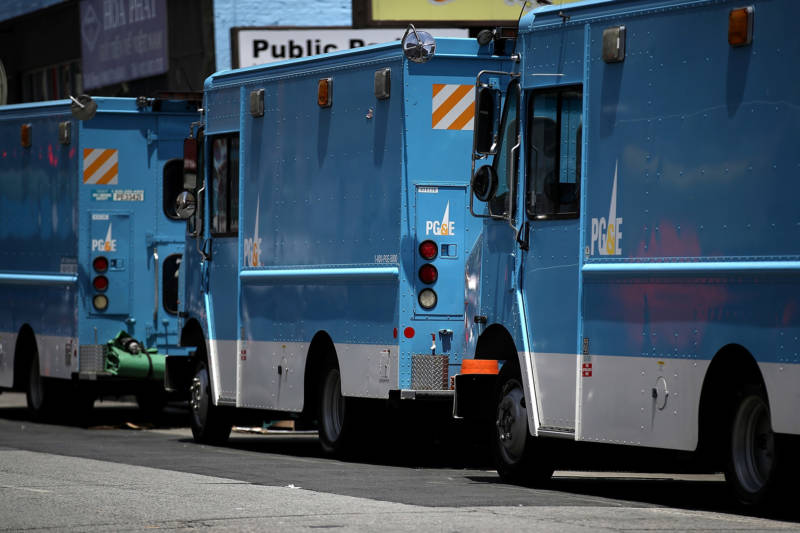San Francisco city officials are offering to purchase PG&E’s electrical grid in the city for $2.5 billion, according to a letter sent to the utility on Friday by Mayor London Breed and City Attorney Dennis Herrera.
The city has been considering a purchase since the utility filed for Chapter 11 bankruptcy in January as it faced mounting liability for wildfires sparked by its equipment. City officials are arguing that San Francisco could provide power that is more affordable, more reliable and safer than PG&E does in the city.
“There has been a lack of investment in infrastructure over the course of the last decade by PG&E,” Herrera said. “And that is, and was, motivated primarily by pursuit of profit. That’s not something that San Francisco is going to be pursuing. We’re not interested in profit. We’re interested in providing safe affordable power to ratepayers rather than trying to make sure that stockholders are getting some great rate of return on their investment.”
The money for the PG&E equipment would come from bonds approved by voters in June 2018, and would be paid off by customers through their electric bill. Customer rates would be the same or lower than current PG&E rates, according to San Francisco Public Utilities Commission’s Assistant General Manager for Power Barbara Hale.
“The transparency and the accountability that residents see because their local government is operating the system is much stronger,” Hale explained. “You’re able to stand at City Hall and give comment in a way that’s much more effective than going to a PG&E shareholder meeting or going to a California Public Utilities Commission meeting.”
San Francisco’s $2.5 billion offering for the infrastructure is “the result of detailed financial analysis conducted by industry experts and encompassing an extensive examination into the company’s assets in San Francisco,” Breed and Herrera said in a joint statement. “The offer we are putting forth is competitive, fair and equitable.”

